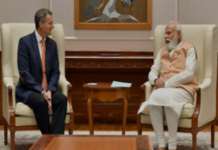By Anurag Dey
New Delhi– Apprehensive that the Centre’s move to let IIMs award degrees would jeopardise their prospects, business schools offering a post-graduate diploma in management (PGDM) want the government to ensure a level playing field.
Management educators contend that once parliament passes the Indian Institutes of Management (IIM) Bill 2017, it will lead to recruiters and foreign partners questioning the validity of a PGDM. They want the government to set up a National Management University (NMU) that will empower them to award degrees as well, and ensure they are not wiped out by the IIMs.
Granting complete autonomy to the 20 IIMs, the Bill — introduced in the Lok Sabha in the first half of the budget session that resumes on March 9 — proposes to empower the premier management institutes to award degrees instead of the PGDMs they have been offering thus far.
Under the aegis of the Education Promotion Society for India (EPSI), directors of over 50 PGDM institutes brainstormed over weekend on the fallout of the IIM Bill and the ways to counter its adverse effects.
The EPSI is an umbrella body of over 500 private institutions, including prestigious ones likes XLRI, MDI, IMT and Bimtech.
The directors unanimously agreed that once the IIMs start awarding degrees, recruiters and foreign universities will have “serious doubts about the legal status of a PGDM”.
“PGDM has been a brand developed by these institutes over the past 60 years. Several lakh management graduates have passed out from these institutions and joined industry both in India and abroad. Besides leading hundreds of corporates, they are also part of IIM faculties,” EPSI Alternate President and Birla Institute of Management Technology (Bimtech) Director H. Chaturvedi told IANS.
He said the PGDM institutions offer 75,000 management graduates every year to the industry — 10 times that of the 20 IIMs.
Chaturvedi said the EPSI will approach Union Human Resource Development Minister Prakash Javadekar as also the All India Council for Technical Education (AICTE) with their proposal of setting up an NMU.
“This is a question of the future of all PGDM institutes. Only when we all are also allowed to award degrees will a level playing field be maintained. And the way to do that is setting up a university to which all B-schools will be affiliated. If needed, we will also approach Prime Minister Narendra Modi,” Chaturvedi added.
He said the EPSI will approach the HRD minister later this month with details of the proposed NMU, which will be modeled on the Singapore Management University.
Fore School of Management Director Jitendra K. Das also questioned the government’s intent behind the IIM Bill.
“Of all PGDM and MBA programmes run in the country, government institutes account for just 13 per cent of the total students enrolled. Why is the government concerned only about the IIMs,” Das asked while speaking to IANS.
“Barring 4-5, most of the IIMs are struggling and have been set up without conforming to AICTE norms. In such a scenario, the IIM Bill seems to be more of a political agenda. It’s amply clear that the government is not concerned about the quality of education but more about scoring political brownie points by showing they have opened new IIMs or given them more autonomy,” Das added.
Speaking in similar vein, Indian Institute of Finance Chairman J.D. Agarwal said the bill was an attempt to kill private B-schools.
“It is the private institutes that have ensured supply of quality management graduates over the years. It is the private sector which has immensely contributed towards higher education in the country.
“Instead of giving impetus to the private sector, the government is trying to kill it with this bill. There is no way out unless we too our allowed to offer degrees,” Agarwal maintained.
EPSI president and VIT University Chancellor G. Viswanathan said the government must do away with procedural bottlenecks.
“In India, (setting up) educational institutions means affiliation, approval, NOC (no objection certificate), permission, recognition — as opposed to most global institutes where only accreditation matters.
“If we want to compete globally, the government needs to do away with old ways of functioning. Accreditation is what we want,” Viswanathan told IANS.
While appreciating the idea of an NMU, Viswanathan said that the top B-schools should approach the University Grants Commission (UGC) and the HRD Ministry seeking deemed university status.
“Based on their performance, the UGC should grant deemed university status to the B-schools so that they can award degrees. Coming up with a new university is time-consuming — you need go through parliament for that. But a deemed university status would solve the problem,” he added. (IANS)






